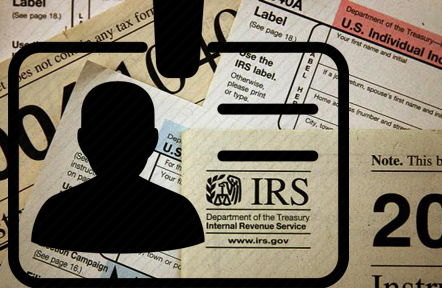Texas’ Proposed ‘Border Protection Unit’ Doubles Down on Failed Deterrence Policies
 This article was originally published on Immigration Impact and authored by Chelsie Kramer.
This article was originally published on Immigration Impact and authored by Chelsie Kramer.
With all eyes on the U.S.-Mexico border ahead of the end of Title 42 on May 11, Texas lawmakers are pushing to increase the state’s role in enforcing federal immigration laws—despite Supreme Court precedent making clear that immigration enforcement is the federal government’s responsibility.
A bill currently before the Texas legislature, House Bill 20, would create a Border Protection Unit, which would establish a group of officers – and deputized civilians – to “arrest, apprehend, or detain persons crossing the Texas-Mexico border unlawfully.” The bill also makes trespassing on private property by migrants entering from Mexico a third-degree felony. HB 20 is a priority for the Speaker of the House in Texas, meaning it is likely to pass.
With a little over a month left in the legislature’s session, the bill by Republican Representative Matt Schaefer of Tyler, Texas, has taken center stage with over 277 people signed up to testify against it in a hearing that lasted through the night earlier this month.
The common thread among the testimony against HB 20 was that further militarization of the border would not solve the issues facing border communities and would only instill fear. It intends to put federal immigration enforcement duties into the hands of state law enforcement and deputized civilians—with potentially disastrous consequences. The risks extend beyond just what this force might do to migrants, as any agent or civilian involved might be subject to legal liability for acting without constitutional authority, given the longstanding precedent restricting the role of states in enforcing immigration law.
Some legislative leaders tout the legislation as providing oversight and accountability to Governor Abbott’s border security initiative, “Operation Lone Star.” The initiative, which launched two years ago, costs Texas taxpayers $2.5 million a week and drains tax dollars from agencies like the Texas Department of Family and Protective Services. However, HB 20’s fiscal note is undetermined because the “fiscal implications of the bill, while assumed to be significant, cannot be determined at this time due to the size and scope of the Border Patrol Unit being unknown.”
In reality, it would likely be another money dump at Texas taxpayers’ expense. If passed, the bill places the Border Protection Unit in the state’s Department of Public Safety. It adds that the department is tasked to “defend and secure the state’s air, maritime, and land borders,” in addition to their current directive of enforcing laws to protect the public. The director of the department, however, will not have administrative or operational authority over the Border Protection Unit. Authority over the unit will reside with the Unit Chief—which will be appointed by Governor Abbott—and can also only be removed by the governor.
Texas last had any major role in stopping migrants in the early 20th century before the Border Patrol was created in 1924. Without federal oversight, Texas Rangers unleashed a campaign of terror on many Mexican and Mexican-Americans, including thousands of lynchings.
In introducing the bill, Representative Schafer explained that the legislation is meant to deter drug cartels from smuggling fentanyl and people across the border.
However, congressional hearings in the House and Senate over the last several months tell a different story. U.S. Customs and Border Protection and the Department of Homeland Security (DHS) continue to testify that most fentanyl entering the United States travels through legal ports of entry with United States citizens, not migrants approaching the border seeking asylum. Schaefer’s Border Protection Unit would be solely focused between ports of entry and, according to the author, is in response to the lack of action by the federal government.
Just weeks before Representative Schaefer introduced the Border Protection Unit to the Texas legislature, DHS Secretary Mayorkas testified in the Senate Committee on the Judiciary on the oversight of the DHS. In his testimony, the secretary outlined the department’s plan to hire 300 additional Border Patrol Agents, surge resources, and invest in new technology to stem the influx of fentanyl and address the increased migration to the southern border.
Despite the full support from the Speaker’s office and 52 Republican coauthors, critics continue to point out the unconstitutionality of the legislation as the Border Protection Unit’s intent seems to be to enforce federal immigration laws.
During the hearing, Representative Schaefer was asked if his bill is intended to tee up a challenge to Arizona v. United States, the 2012 Supreme Court case that ruled the authority to enforce immigration laws rests squarely with the federal government. While Representative Schaefer refused to answer the question, Texas Attorney General Paxton testified in March to the Senate Committee on Border Security that he wants to “test” Arizona v. United States and needs the legislature to pass a bill this session to do so.
Representative Schaefer’s HB 20 is expected to pass out of the House State Affairs committee and quickly be heard on the House Floor.
A nearly permanent military-style presence on the Texas-Mexico border by state officials is another fever dream from anti-immigrant hardliners, who for years have tried to place federal immigration enforcement in the hands of the state. But we know from other experiences that deputizing states to carry out federal enforcement doesn’t work, and can sow distrust at best and have deadly consequences at worst.








